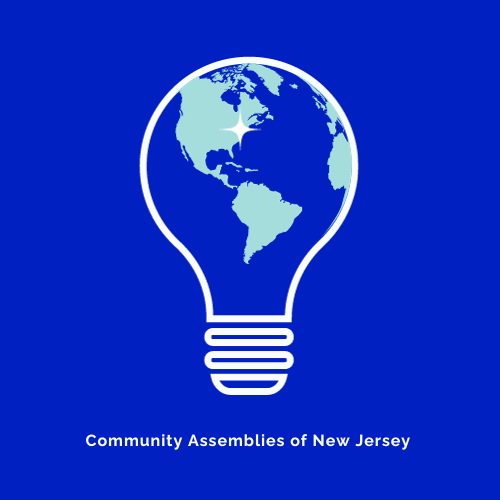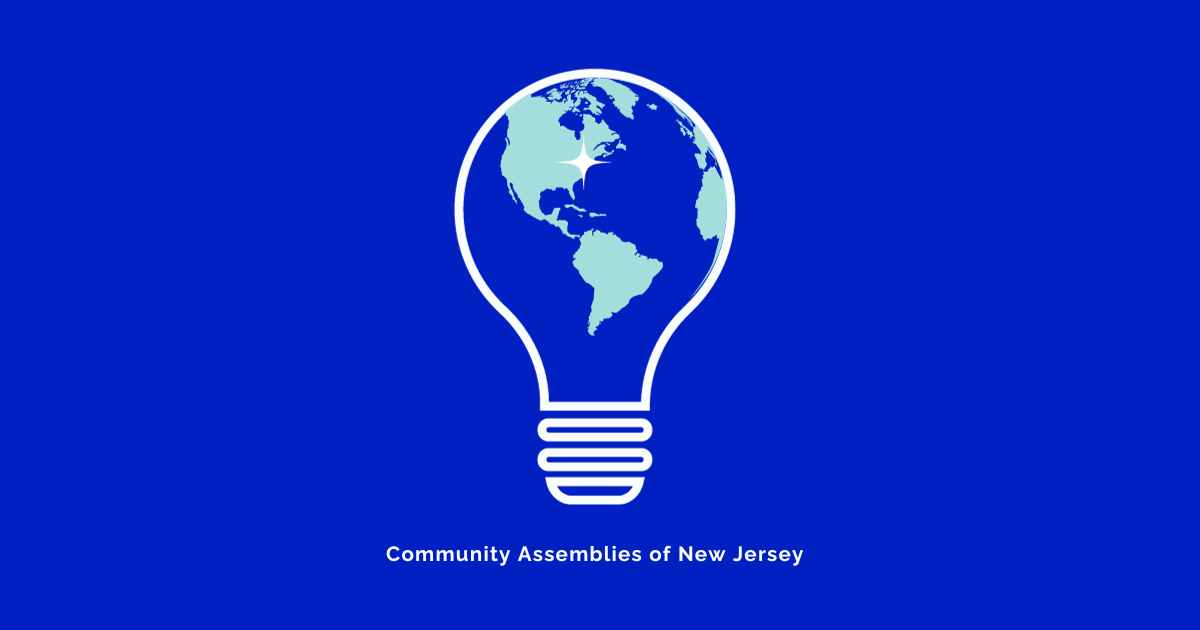
Facilitate
Providing info to help you become a facilitator and set up an assembly or hub
Community assembly framework
Our Collective Vision
Our vision is to establish a cooperative network of self-determining communities in New Jersey begins with the formation of small local Community Assemblies. These are the grass-roots assemblies of 3 to 12 local people where needs are assessed, and decision-making takes place for the benefit and highest good of the local community. Community Assembly Hubs will form a network of regional facilitation centers providing a wide range of facilities including administrative support for the Community Assemblies and any subsequent formation of Community Law Courts or Community Peace Services.
Community Special Advisors are pioneers working for different Community Assemblies and across the entire network who have a good understanding of Natural Law principles and often have experience living outside the mainstream systems. Special Advisors from the Community Assemblies of the British Isles generously contribute their knowledge and expertise to provide support for those of us here in NJ who are setting up local Community Assemblies and Hubs. Community Assembly Facilitators are those who have set up a Community Assembly in their area of NJ and join CAofNJ in order to plug into the flow of knowledge between local, regional and overseas groups such as CABI and AOW.
Our Facilitators are actively working to:
1. Promote our shared vision, mission, and values
2. Collect info from community members and disseminate as needed
3. Establish clear communication channels between their local community, CAofNJ, CABI and AOW
4. Gather & share knowledge/info that might be helpful to other members of CAofNJ
5. Provide feedback so that we can continuously improve our organizing framework and services
Becoming a facilitator
Community Assembly Facilitators
There are no elected representatives in the Community Assemblies, but there are facilitators who volunteer to work in the community to convert the wishes of the people into meaningful actions and to cooperate with other Community Assemblies across the network. Community Assembly Facilitators are members of their local Community Assembly who wish to step up and contribute their knowledge, expertise, and time to help realize the vision and mission of CAofNJ.
Any requirements of members in the local community that cannot be handled locally in Community Assemblies will be handled by the state facilitators of CAofNJ who will act as a communication channel between all the various parties. This information will be shared openly with other Community Assemblies so that ideas and discoveries can be disseminated quickly and efficiently across the state and beyond.
Local Assemblies can be formed with three local facilitators who bring their time, wisdom, and experience to help the community develop their own structure. Once set up, local Community Assemblies will provide education, information, and support to those coming forward to take part.
During the changeover from the current system to the new system of self-determining communities, our Community Assembly Facilitators must be prepared to mentor and support individuals, keeping everyone informed of changes, listening to feedback and taking action to address concerns. As we create more permanent self-governance structures, local Community Assemblies must ensure that they act on behalf of humanity and not for themselves. This means reporting local issues to the relevant assemblies for wider communication across the network. Facilitators must be aware that they are first and foremost the servants of the people.
Community Assembly Hubs will provide services that the local Community Assemblies cannot effectively accommodate such as community security, common law courts, natural healing services and so on. There may be a need for multiple Community Assembly Hubs in one region depending on the population of the area and geography. Community Assembly Hubs will facilitate communication and cooperation between various projects as well as supporting initiatives to eventually help people to stop paying unlawful taxes in organized ways.
Attributes of a Facilitator
The following abilities are demonstrated by successful Community Assembly Facilitators and Special Advisors:
- Maintaining a neutral position within the community
- Communicating clearly with good presentation skills
- Internalizing our Declaration, shared vision, and Natural Law
- Being objective, rational, and patient in all situations
- Listening to suggestions and taking appropriate action
- Demonstrating honesty and being trusted by the community
- Managing the pace of implementation without cutting corners
- Including everyone in the decision-making process
- Mentoring, educating, and coaching as required
- Spreading the word to help us grow our network
It is essential that all Community Assembly Facilitators and Special Advisors work together as a team by supporting each other and building trust through open communication. Community Assemblies are encouraged to share knowledge and expertise with each other in order to maintain a healthy cooperation and strengthen the effectiveness of the network.
How to set up a Community Assembly in your area
Step 1
Locate and gather together at least two other willing volunteers who are interested in setting up a Community Assembly in your area. Arrange your initial meetings to talk through ideas and go through the information provided on this website so that you are clear about your aims and objectives and in agreement regarding next steps.
Step 2
Make sure a Community Assembly has not already been enlisted for your area by reaching out to us with a request and we will get back to you. If there is not a Community Assembly in your area, you are invited to join CAofNJ as member and then you can list your Community Assembly on our Group Directory. All Community Assemblies must have a minimum of 3 facilitators and must be named with the prefix:
'Community Assembly of ...' and include your chosen location.
Step 3
Hold further meetings to discuss how you can pool resources, utilize skills, and bring other community members into the fold. Community Assembly members are not required to join CAofNJ, but are very welcome to do so if they wish. It is up to Community Assembly Facilitators to relay information from CAofNJ and feedback to the National Emissary for the U.S.A. (Gayla Olson) and the Global AOW/CABI network as required. Make sure proceedings are recorded in writing somehow. This information does not need to be too detailed, but it does need to accurately reflect questions posed and answers provided during your meetings.
Step 4
Set up a shared diary or calendar to record any notable dates, events, or deadlines so that actions can be tracked effectively and followed up accordingly. Make sure that any sensitive information is stored securely and other information can be retrieved and accessed so that you have a point of reference if required.
Step 5
Continue informing residents in your community that a Community Assembly has now been set up and enlisted on our Group Directory. Share your activities and achievements on the CAofNJ website blog or send us stories to inspire new members and volunteers to get involved.
(Marcelle McGovern updates the website/blog weekly).
Step 6
When these basic steps have been completed, contact us again to arrange a call or Zoom meeting with the facilitators of CAofNJ so that you discuss any questions you may have and to find out about our support services. All Community Assembly Facilitators must act on behalf of the community and not themselves, addressing any issues raised and reporting back through the knowledge-flow network.
We are here to help and we very much look forward to hearing from you.
Creating Local Community Assembly Hubs
"Community Assembly Hubs are safe havens where local people can establish services to meet the needs of local people and work together to live in peace and harmony for the highest good of all."
-Sue Cartwright, Founding Facilitator, Community Assembly Hub, Devon, British Isles
Our intention is to set up a network of centers dedicated to local communities across New Jersey that are safe, nurturing, and creative environments founded on shared values, support, and cooperation. A typical Community Assembly Hub consists of some or all of the following facilities and services:
- A central administration office for the shared flow of information
- A large room allocated as a larger group meeting space and eventual Community Court
- A central library which can also be used for teaching and for smaller meetings or study areas
- A healing center with dedicated treatment rooms and educational classrooms
- A healing garden for grounding, therapy, and herbs for making remedies
- A large communal kitchen with a breakfast/dining area and utility rooms
- A garden area for growing fruit, vegetables and herbs with space for storing and sharing produce
- Outbuildings for storage, studios, workshops, and communal showers/outhouses for campers
- Gardens for holding events such as seasonal and special occasion gatherings
- Land suitable for building Tiny House villages and communal camping in tents, teepees, and yurts
Collaboration is key for identifying the most respected knowledge, methodologies, ideas, technologies, and practices that can be successfully implemented through a process of cooperation, support, evidence-based rationality, consensus, and continuous improvement. This removes the need for a leadership/management hierarchy and associated roles and titles. Instead everyone works together with the help of the Community Assembly Facilitators who are responsible for setting up and administering Community Assembly Hubs for the best interests of individuals, the local community, and the Community Assembly network in general.
If you are interested in setting up a Community Assembly Hub, please contact us and let us know how we can best support you.
The greatness of a community is most accurately measured by the compassionate actions of its members.
-Coretta Scott King
Contact Us
If you have any questions or are interested in becoming a member, please complete our contact form and we will get back to you as soon as we can.
We look forward to hearing from you!
Contact us
COMMUNITY ASSEMBLIES
OF NEW JERSEY
We are an alliance of
self-governing individuals organized into small local Community Assemblies across New Jersey working together in harmony under Natural Law.
Join us for free today!

All Rights Reserved | Community Assemblies of New Jersey
